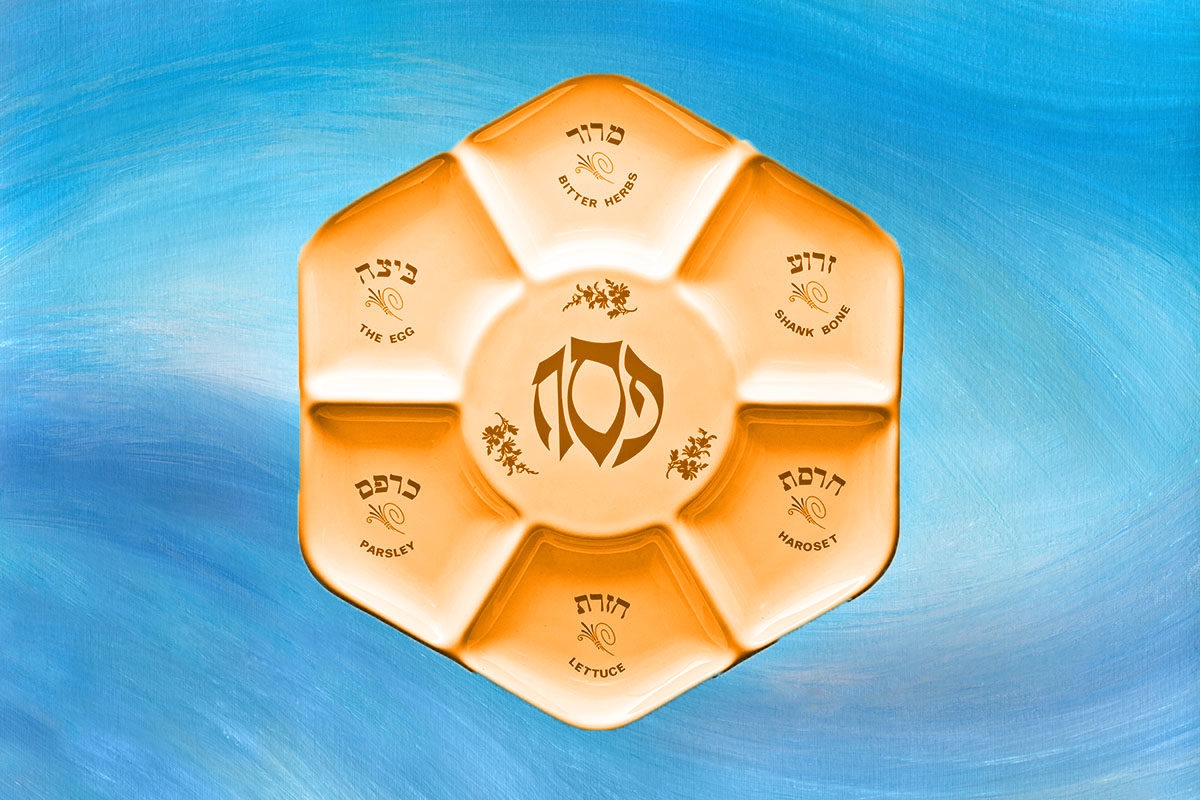When we wrote the Kveller Haggadah in 2019, preparing for a seder during a pandemic was not on our radar. What a difference a year makes! We, too, wish we could gather with friends and family this Passover.
However, as we’ve been contemplating our seders in these sad and scary times, we’ve started to realize that there are a few upsides. We thought we would share them — even as we look forward to a full house next year… in Jerusalem… with a vaccine. Chag sameach!
1. You can serve whatever you want.
Ever notice how you get full during a seder, even before the “festive meal” has begun? Haroset, hard-boiled eggs, matzah, and veggies — it’s a lot of food! Add some soup and a slice of flourless chocolate cake and it is, on any other night, an undeniable feast. If you want to make the kugel or the brisket or the parsley fennel salad you saw on Instagram — and your local shop actually has those ingredients in stock — go for it and yasher koach! But if your cooking doesn’t extend beyond the seder plate, that’s OK, too.
2. You can take advantage of the intimacy.
As much as we all aspire to have meaningful conversations around the seder table, it can be hard with a crowd. And by the time those conversations get going, the kids are off spreading a trail of matzah crumbs around your home. This Passover, you can tailor your seder to your children’s interests — and really get into it!
We recommend starting with one of the mini-essays in the Kveller Haggadah. There’s a series called “Top Secrets of the Seder,” where, among other things, we introduce you to the female superheroes of the Passover story. There’s another essay series called “Memory Lane,” exploring how memories are formed, kept, and connect us to one another.
3. You can take advantage of the internet.
On a normal Passover, a tablet on the table might seem out of place. This year, with everything moving online, it fits right in. We’ll be singing along to our favorite Passover videos and songs. It will add more voices to the room, and infuse the holiday meal with a fitting joy and reverence.
4. Your kids can’t embarrass you.
Going to a mostly grown-up seder with young children in tow can be stressful. Maybe Winnie’s whining that she’s hungry five minutes into the ritual meal; maybe Sammy won’t say hello to your aunt. But this year, there’s no need to face-palm if your daughter decides she doesn’t want to say the Four Questions, and there will be no reference to “the wicked child” after your son tackles his cousin for the afikomen. Once you were a slave to your in-laws’ side-eye. Tonight you are free! From judgment!
5. The concept of freedom is suddenly not so abstract.
Freedom can be a pretty hard concept to grasp when you’ve never experienced limitations on it. This year, we have an opportunity to discuss freedom with our children in a moment when school, playdates, and the playground are off-limits.
How is the lack of free movement during this moment affecting them (and us, and society)? When this period of social distancing and home quarantine pass, what will we do with the freedoms we’ve regained? Remember, freedom in this context — and the Israelites, too — is not just about doing things for ourselves, but finding ways to connect with others.
6. You’re on your own timeline.
This year, your seder can be as long or as short as you want it to be. You can indulge in your children’s questions. You can see where they lead without worrying about adhering to someone else’s timeline or ideas about what this ritual meal “should” be. Or you can skip the parts that don’t speak to you. The night is yours.
7. You’ll always remember this one.
Passover memories can easily blend together. The fluffy (or dense) matzah balls. The tender (or dry) brisket. The cousin who always makes the same joke when opening the door for Elijah. But whatever we do this year will be memorable in a different way. As you will see in the Kveller Haggadah, making memories and keeping memories is a key part of Passover and being a Jew.
For generations to come — pu, pu, pu — you and your family will be sharing the memories of this night that will be different than all the other nights.
8. Reminder that our traditions endure.
Jews have held seders through many tough moments throughout history. This is one of them. When you have your seder, no matter what it looks like, you are part of a long line of Jews who have done what it takes to keep our traditions alive.
Remember, these are the stories and rituals that kept our ancestors going, and they’ll get us through this year’s Passover, too.
Head image background by Pobytov/Getty Images; seder plate image by liorpt/Getty Images








